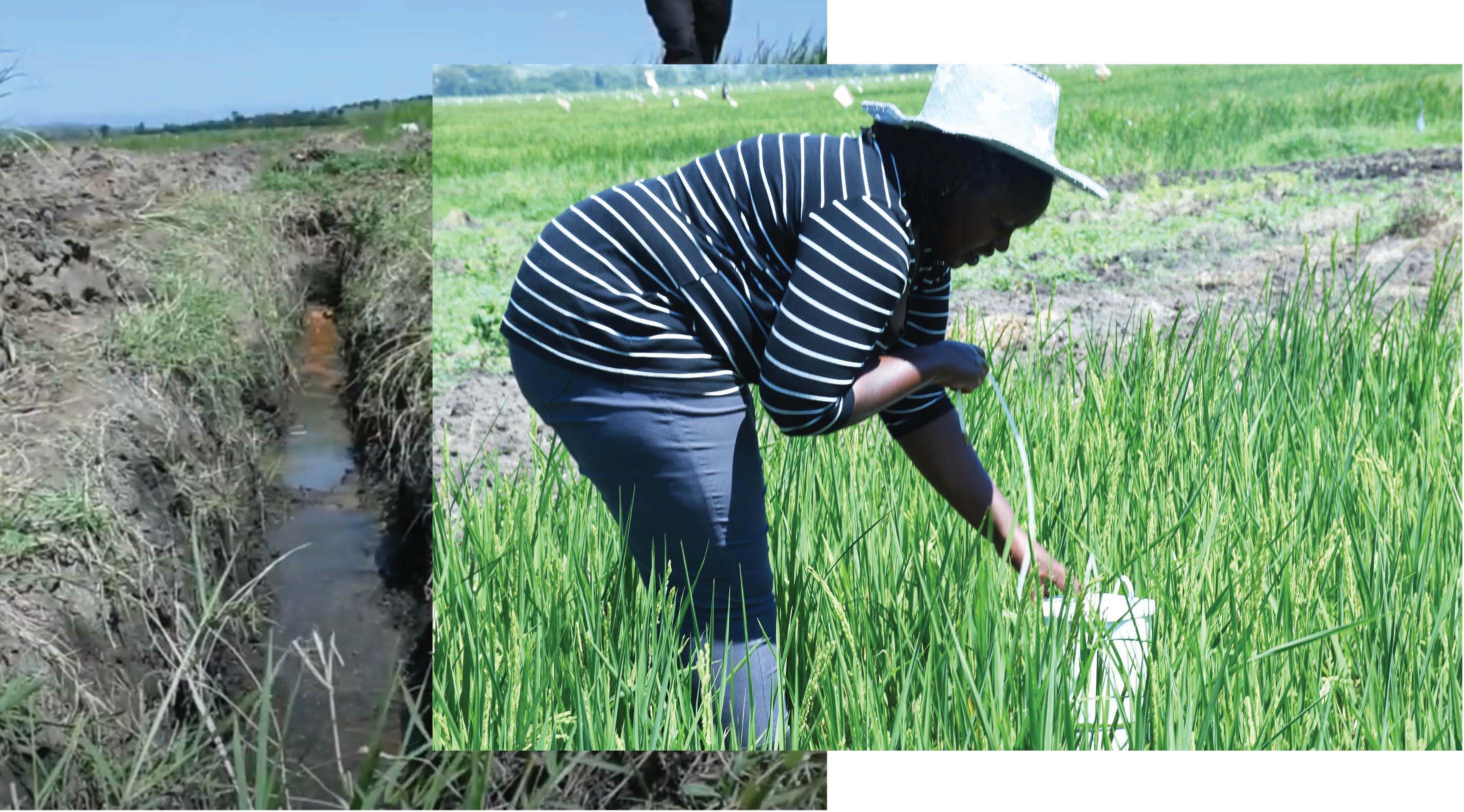A research was conducted to assess different drainage systems with the aim to improve the yield of rice cultivated in poorly drained paddy fields. According to the research, deep drainage techniques are believed to enhance water and nitrogen use efficiency in poorly drained paddy fields which would ultimately trigger better rice grain yield. This research was conducted by Olive Tuyishime and published as a paper titled “Effects of drainage intensity on water and nitrogen use efficiency and rice grain yield in a semi-arid marshland in Rwanda”.

Olive during field work in Muvumba Marshland in Rwanda
The study about drainage management as an important aspect in intensification of irrigated paddy rice production was conducted in 2016 and 2017. A three-season field experiment was carried out to assess the effects of drainage intensity on water and nitrogen use efficiency and rice grain yield in Muvumba Marshland in Rwanda. The research hypothesis was that managed drainage intensity reduces nitrogen loads in drainage water and improves rice yield.
The experiment comprised 12 plots with four blocks each with three treatments (plots), arranged in a randomised complete block design. The research tested two deep drainage systems as well as the traditional (shallow) drainage system in the study area.
The research showed that higher drainage intensity (deeper drains, coupled with drainage depth control structures), had positive effects in all seasons. Rice grain yield was 61–131% higher, crop nitrogen uptake was 24–90% higher and water use efficiency (WUE) was 50–150% higher in the deep drainage treatments than with the shallow drainage treatment.
During the experimental period, a decrease in carbon/nitrogen (C/N) ratio was observed. Therefore it was recommended that straw should be returned to the soil after harvesting in order to maintain soil organic matter and long-term soil fertility in paddy rice cropping systems.
In conclusion, the research showed that deep drainage systems can enhance water use efficiency and rice grain yield in poorly drained paddy fields. However, it suggested long-term field studies in similar environments to confirm the interaction of drainage intensity and other processes affecting nitrogen losses in drainage water, such as nitrogen loss pathways in paddy fields.
Tuyishime is a University of Rwanda academic staff currently following her PhD studies at the Swedish University of Agricultural Sciences, in Sweden. She is among the UR-Sweden Program PhD students under the bilateral research cooperation between Rwanda and Sweden under the support of the Swedish International Development Cooperation Agency (Sida).
